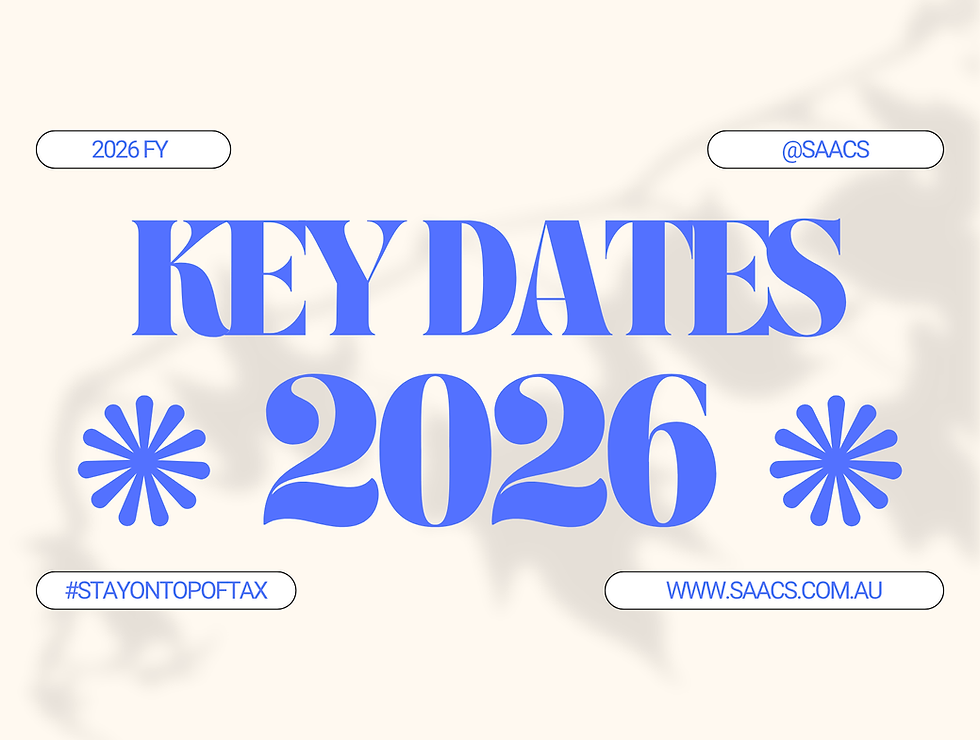GST 101: The Essentials Every Business Buff Needs to Know
- The SAACS Team
- Sep 14, 2023
- 2 min read

We get it – the world of GST can be a maze of numbers and regulations. Let's break it down so you're confident in your GST practices and can reap the benefits without any hiccups.
GST Basics:
- What is GST? It's a tax added at every step of the supply chain. Businesses add GST to the price of most goods and services.
- GST Credits: If you're registered for GST, you can get credits from the ATO for the GST you've paid on business-related purchases.
- Who pays the GST? It's the suppliers of the goods or services. They collect the GST from customers and remit this to the ATO. GST is not a tax and not an income.
Thinking of spicing up the office or getting a new ride?
Keep these in mind:
1. Second-hand Goods: It's often a bargain to buy second-hand. But, remember if you buy from someone not registered for GST (like a pal or through Gumtree, eBay, etc.), you probably can't claim GST. Also, if you're registered and sell your business assets, you've got to charge GST.
2. Deposits: Buying something big? Often, you'll put down a deposit. If you're on a cash basis for GST, you claim the credit not when you pay the deposit, but when it counts towards the purchase price.
3. Cars Over the Limit: There's a cap on GST credits for cars that cost more than the depreciation limit ($68,108 for 2023/24). If your car's more than that, your GST claim gets limited. But, some exceptions apply.
4. Winding Down or Selling? If you're thinking of ending your business, watch out for the GST you've claimed on assets you still have. If you cancel your GST registration, you might need to give some of that back.
Small Transactions, Big Impacts:
It's not just the big buys. Everyday transactions can quietly build up to substantial GST adjustments:
- Bank Fees: Regular fees don't have GST, but merchant fees do.
- Insurance: Policies can have a stamp duty bit that's GST-free. Check if you're not over-claiming.
- Recharge or top-up cards (t-tag): Account for GST when you use them for business, not when you buy them.
- Private Splits: Some small businesses can adjust GST yearly for shared personal-business costs.
- Software Subscriptions: if you pay subscriptions to overseas business (such as amazon, google, etc.) and thought there is no GST credits as they are overseas. Then check your invoice again, as the change of rules in 2017 had forced some big players to be registered in Oz.
The Golden Rule: Always check your tax invoices for GST, and keep your GST documents for at least 5 years.
Any further questions on GST? Don't navigate this journey alone as SAACS is here to help.




Comments